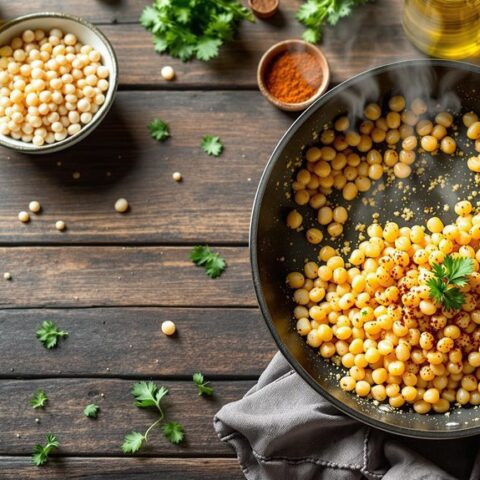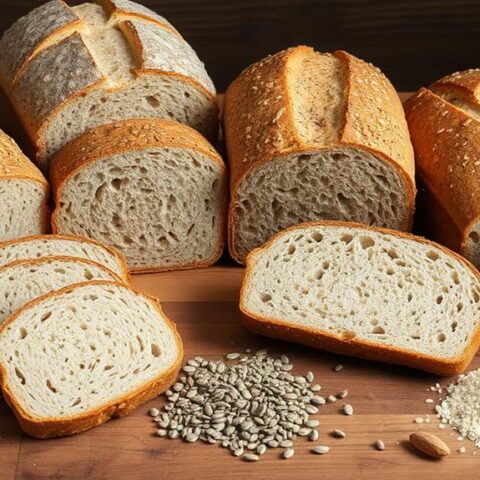
Prosecco can be keto-friendly when selecting specific varieties and consuming in moderation. The keto diet requires low carbohydrate intake, making dry Prosecco varieties like Brut Nature and Extra Brut, which have less than 1 gram of net carbs per serving, suitable options. These choices align well with the carbohydrate restrictions of the keto diet. Conversely, sweeter Prosecco styles such as Extra Dry contain higher carbohydrate levels, potentially exceeding daily limits. Being mindful of Prosecco's sweetness level and overall carb content is essential. Exploring which varieties and how they fit into a keto framework can be beneficial.
Key Takeaways
- Brut and extra brut Prosecco varieties are keto-friendly with less than 1 gram of net carbs per serving.
- Prosecco's carb content varies; brut nature and extra brut have the lowest residual sugar.
- Sweet Prosecco types like demi-sec contain high sugar, unsuitable for keto diets.
- Consuming 1-2 glasses of dry Prosecco helps maintain ketosis and daily carb limits.
- Monitoring Prosecco's residual sugar levels is crucial for keto compliance.
Understanding the Keto Diet
The ketogenic diet, commonly referred to as the keto diet, is a nutritional approach that emphasizes a significant reduction in carbohydrate intake, typically limiting consumption to between 20 and 50 grams per day.
This low carb strategy aims to induce ketosis, a metabolic state where the body shifts from using glucose as its primary energy source to burning fat for fuel. This change is essential for weight loss and improving insulin sensitivity, as the body efficiently uses stored fat, leading to potential health benefits.
Additionally, metabolic health is enhanced through better blood sugar control and lower insulin levels. In the context of the keto diet, it is essential to monitor net carbs per day, which are calculated by subtracting fiber from total carbohydrates. This consideration helps individuals maximize the diet's effectiveness by ensuring that carbohydrate intake remains within prescribed limits.
To compensate for the reduced carbs, the ketogenic diet recommends a high intake of fats, constituting approximately 70-75% of daily caloric intake. This macronutrient balance is vital for maintaining ketosis and optimizing metabolic function.
The keto diet is increasingly popular, with an estimated 12.9 million Americans adopting this lifestyle. By focusing on low carb consumption, individuals can achieve substantial weight loss and enhanced health outcomes.
Alcohol and Carbohydrate Content
Exploring the relationship between alcohol and carbohydrate content is vital for individuals adhering to the ketogenic diet. Prosecco, a popular choice among alcoholic beverages, varies in its carb content, which directly impacts its compatibility with keto guidelines. A standard 5 oz glass of Prosecco typically contains approximately 3.8 grams of net carbs. This places it in the moderate carb category when compared to other alcoholic options.
The variation in carb content is primarily determined by the sweetness level of the Prosecco. Brut varieties, such as brut nature, extra brut, and brut, are remarkably low in residual sugar, resulting in fewer carbs, often less than 1 gram per serving. This makes them more suitable for a keto diet, which requires maintaining low carb intake.
Conversely, sweeter Prosecco styles, including extra dry and dry, can have considerably higher carb counts due to increased sugar content, making them less compatible with the stringent carb restrictions of the ketogenic lifestyle.
It's important to be mindful of the types of fats consumed while on a keto diet, as these can affect cholesterol levels. For those committed to a strict keto regimen, careful selection of Prosecco with lower sugar and carb content is critical.
Opting for drier options and practicing moderation can help maintain daily carb limits effectively.
Types of Prosecco
Prosecco is categorized by its residual sugar levels, which directly influence its carbohydrate content, a critical factor for those adhering to a ketogenic diet.
The styles range from brut nature and extra brut, with the lowest carb content, to demi-sec, which is the sweetest and highest in carbohydrates.
Understanding these variations is essential for selecting a Prosecco that aligns with keto dietary restrictions.
Residual Sugar Levels
Among the various factors influencing the keto-friendliness of Prosecco, residual sugar levels play an essential role. Prosecco is classified by its residual sugar content into several styles, each impacting its suitability for a keto diet differently due to varying net carbs.
For those adhering to a keto diet, selecting Prosecco with minimal residual sugar is imperative to maintaining low carb content. Brut nature and extra brut Prosecco are the most favorable options, containing less than 1 gram of carbs per serving due to their minimal sugar content.
Brut Prosecco, slightly higher in sugar, contains approximately 1-2 grams of net carbs per serving, still making it a reasonably keto-friendly choice. However, extra dry Prosecco with 12-17 grams of sugar per liter yields about 3-4 grams of net carbs per serving, which could impact daily carb limits.
Dry Prosecco, with up to 32 grams of sugar per liter, results in a higher carb content, making it less suitable for those on a strict keto regimen. The sweet demi-sec Prosecco, containing 32-50 grams of sugar per liter, considerably increases net carbs, and should be avoided by keto dieters aiming to minimize carb intake.
Carb Content Variability
Typically, the carb content in Prosecco varies greatly across its different styles, primarily determined by the residual sugar level. This variability markedly impacts its suitability for those on a keto diet, which often requires monitoring net carbs intake.
Prosecco is classified into several styles, including brut nature, extra brut, brut, extra dry, dry, and demi-sec. Each of these styles presents distinct carb levels due to differing residual sugar content.
Brut nature and extra brut Prosecco are particularly remarkable for keto dieters, as they typically contain the lowest carb content. These styles often present less than 1 gram of carbs per serving, making them favorable for maintaining low net carb intake.
In contrast, extra dry Prosecco contains a higher residual sugar content, averaging around 11 to 12 grams per liter, translating to approximately 3-4 grams of net carbs per serving. Consequently, while still relatively moderate, these net carbs may require careful consideration within a keto framework.
Dry Prosecco, with up to 32 grams of sugar per liter, results in higher carb counts, potentially exceeding the daily net carb limit for keto diets. Therefore, selecting lower residual sugar styles, such as brut, is advisable for those adhering to keto guidelines.
Making of Prosecco
The production of Prosecco is a meticulous process that centers around the use of the Glera grape variety, employing the Charmat method to achieve its characteristic effervescence. This two-step fermentation process begins with an initial fermentation lasting approximately 8 to 10 days to create the base wine.
The secondary fermentation, conducted in pressure-resistant stainless steel tanks, introduces the signature bubbles to Prosecco. This method of making Prosecco is pivotal in influencing the final sugar content and carbs per serving, contingent upon the dosage added post-fermentation.
The dosage—a calculated blend of sugar and still wine—determines the sweetness level, directly affecting the carb content in the Prosecco. It is this addition that distinguishes between various sweetness classifications, from brut nature, which contains no added sugar, to demi-sec, which has a higher sugar content.
The absence of added sugar in brut nature results in a lower carb and residual sugar content, making it a potentially preferable option for those monitoring their carb intake. Conversely, increased added sugar in sweeter classifications results in higher carbs per serving, highlighting the significant impact of production choices on Prosecco's nutritional profile.
Carb Content in Prosecco
In the domain of dietary considerations, particularly for those adhering to a ketogenic lifestyle, understanding the carb content in Prosecco is essential. Prosecco, a popular sparkling wine, typically contains approximately 3.8 grams of net carbs per 5 oz serving. For individuals strictly following a keto diet, this carb content could be significant.
The variation in net carbs largely depends on the specific style of Prosecco, with brut options being more favorable for keto dieters. Brut varieties, including brut nature and extra brut, have the lowest residual sugar levels, thereby reducing the carb content and making them more keto-friendly compared to extra dry or dry styles.
It's also important to prioritize high-quality fats in the diet to support heart health while enjoying such treats. Incorporating Prosecco into a ketogenic regimen requires careful selection. Choosing brut options is advisable to stay within daily carb limits while still enjoying a celebratory glass of sparkling wine.
Additionally, a standard glass of Prosecco contributes 80-100 calories to one's caloric intake, which, alongside its carb content, should be accounted for by those managing macronutrient ratios stringently. Ultimately, understanding the nuances of Prosecco's carb content empowers keto adherents to make informed decisions without compromising their dietary goals.
Comparing Dry Sparkling Wines
Among the diverse selection of sparkling wines, dry varieties, such as Brut Champagne and Prosecco, are particularly important for those following a ketogenic diet. Dry sparkling wines generally contain less than 1 gram of carbs per serving, aligning well with the carb restrictions necessary in a keto lifestyle. The carb content in these wines can fluctuate significantly based on their sweetness levels. Styles such as brut nature and extra brut offer the minimal residual sugar, enhancing their compatibility with ketogenic principles.
A standard 5 oz glass of dry sparkling wine, such as Prosecco, contains around 2 grams of net carbs. This makes it a feasible option for those wishing to enjoy a celebratory beverage without compromising their dietary goals. In contrast, sweet varieties like Moscato should be avoided due to their raised carb content, often exceeding 12 grams per serving, which could disrupt ketosis.
| Wine Type | Grams of Net Carbs (per 5 oz) | Suitability for Keto Lifestyle |
|---|---|---|
| Extra Brut | <1 | Highly Suitable |
| Brut Champagne | <1 | Highly Suitable |
| Prosecco | ~2 | Suitable |
Choosing a dry sparkling wine guarantees adherence to daily carb limits, fostering an enjoyable yet compliant keto experience.
Prosecco: Keto-Friendly Options
Frequently, individuals committed to a ketogenic lifestyle seek beverage options that complement their dietary restrictions without sacrificing enjoyment. Among the array of alcoholic drinks, Prosecco, particularly its dry varieties, can be a suitable choice for those adhering to a keto diet. Options like brut nature, extra brut, and brut Prosecco typically contain less than 1 gram of carbs per serving, making them fitting for a keto meal plan.
It's similar to choosing low-carb beers and spirits, which are also favorable for keto dieters. These dry Prosecco offerings align well with the low-carb requirements of the ketogenic diet, providing an enjoyable experience without the concern of excessive carbohydrate intake.
However, not all Prosecco variants are conducive to keto goals. Prosecco labeled as extra dry or dry may have considerably higher sugar and carb content, ranging between 12 to 32 grams per liter, potentially hindering keto compliance.
As a result, it is essential for consumers to scrutinize labels for residual sugar levels, as lower residual sugar correlates with lower carb content. A serving of brut Prosecco, with approximately 2 grams of net carbs, serves as a moderately consumable option within a keto framework.
When consumed responsibly, Prosecco can offer a revitalizing indulgence to those prioritizing a ketogenic regimen.
Low-Carb Alternatives
For those adhering to a ketogenic diet, selecting low-carb beverage alternatives can greatly enhance compliance without compromising enjoyment. Among these, brut varieties stand out as excellent options, often containing less than 1 gram of net carbs per serving, making them suitable for maintaining ketosis.
Brut Champagne, for instance, mirrors the carb content of dry Prosecco, offering a sparkling yet keto-friendly choice. However, it's important to take into account potential cardiovascular risks associated with long-term adherence to the keto diet, as increased LDL cholesterol levels have been observed.
In addition to sparkling options, dry white wines such as Sauvignon Blanc and Pinot Grigio provide viable low-carb alternatives. These wines typically contain around 3 grams of net carbs per 5 oz glass, allowing for moderate consumption without exceeding daily carb limits.
Hard liquors like vodka, tequila, rum, and gin are naturally carb-free, making them ideal for crafting keto-friendly cocktails. Pairing these spirits with soda water or low-carb mixers can create invigorating drinks that align with keto principles.
For beer enthusiasts, light beers such as Bud Select 55 and Michelob Ultra remain options with less than 4 grams of carbs per serving, offering a way to enjoy a traditional beverage while adhering to dietary guidelines.
These alternatives guarantee that keto dieters can maintain their lifestyle while enjoying diverse drinks.
Tips for Keto Dieters
Maneuvering the complexities of a ketogenic diet requires diligence and strategic planning, particularly when it comes to selecting alcoholic beverages. Prosecco, when chosen wisely, can fit into a keto diet.
Opt for dry varieties like brut nature or extra brut, which typically contain around 1-2 grams of net carbs per serving. These options are low in carbs, making them compatible with keto-friendly net carb consumption. Monitoring your overall daily carb intake is vital. Even low-carb alcoholic drinks such as Prosecco can contribute considerably to your carb count, with a standard glass containing about 3.8 grams of net carbs.
To maintain ketosis, limit your Prosecco consumption to 1-2 glasses. Excessive drinking may impede fat burning and cause you to surpass your daily carb limits. Additionally, it's important to be aware of potential risks associated with the ketogenic diet, such as nutrient deficiencies and hypoglycemia, especially when pairing with diabetes medications.
Avoid sweeter Prosecco types like demi-sec, which have higher sugar levels, ranging from 12-32 grams of sugar per liter, potentially disrupting your keto diet goals. Additionally, staying hydrated with water while enjoying alcoholic drinks like Prosecco is essential. Hydration helps mitigate alcohol's effects and supports your overall health objectives on a keto diet.
Frequently Asked Questions
How Much Prosecco Can You Drink on Keto?
When considering keto alcohol options, a standard Prosecco serving size of 5 oz contains about 3.8 grams of carbs. To maintain ketosis, limit consumption, consider low carb mixers, and adhere to drinking moderation tips for ideal health benefits.
How Many Carbs Are in Prosecco?
Prosecco contains approximately 3.8 grams of carbohydrates per 5 oz serving. Prosecco calories and carbs vary by sweetness, influencing pairings and recipes. Significantly, brut varieties offer benefits with lower carbs. Popular brands provide diverse options for wine enthusiasts.
What Alcohol Won't Kick You Out of Ketosis?
In a ketogenic lifestyle, low carb cocktails and dry wine alternatives like brut Champagne are preferred due to minimal sugar content and alcohol effects. Spirits such as vodka and gin are also suitable, maintaining ketosis without excessive carbs.
What Has Less Carbs, Champagne or Prosecco?
When examining carb content, brut Champagne generally has fewer carbs than Prosecco, which varies in sweetness due to its origins. Both sparkling wines offer distinct flavor profiles, ideal for festive occasions, but Champagne is typically lower in carbohydrates.
Conclusion
Prosecco can be considered moderately keto-friendly due to its relatively low carbohydrate content compared to other alcoholic beverages. The carbohydrate content varies among types, with drier varieties generally being more suitable for a keto diet. Sparkling wines, like brut and extra brut prosecco, typically contain fewer carbs. While prosecco can fit into a ketogenic lifestyle in moderation, low-carb alternatives such as dry wines or spirits may be more appropriate for strict adherence to keto dietary goals.










No Comments